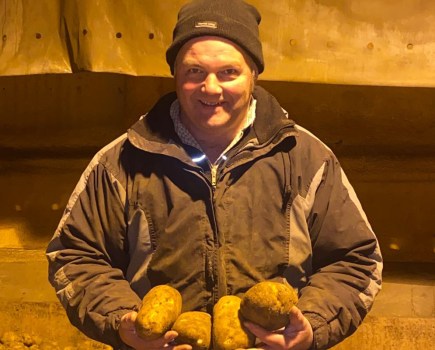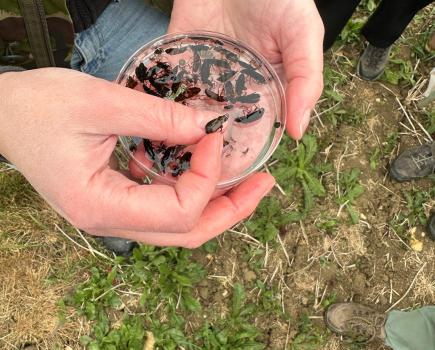 Enjoying putting pen to paper and a good grasp of science don’t often go hand in hand. But many of the UK’s best arable technical writers have been successful because they had a good grounding in agronomy, trials work or farming before having any aspirations to be a writer.
Enjoying putting pen to paper and a good grasp of science don’t often go hand in hand. But many of the UK’s best arable technical writers have been successful because they had a good grounding in agronomy, trials work or farming before having any aspirations to be a writer.
When I graduated from Wye College in 1990, I couldn’t decide which direction I wanted to go in. On the one hand I was fascinated by agronomy and, on the other, I loved to write. Weighing up my options, I spoke to the then prolific agricultural journalist Edward Long. He encouraged me to write something and then send it to him for feedback.
That gave me a number of immediate challenges – I needed a story, to conduct interviews (how do I go about that?) and then work out how to write an article in the right style – and that was a far cry from the scientific writing I’d been doing for the past three years.
In the end, it was a start-up company based at Wye College that gave me my inspiration. Even though it was now more than thirty years ago, I remember that first story well – probably because it took me a long time to work my way through the process. The headline was ‘Where’s there’s muck, there’s money’ and the company it featured was Controlled Composting Systems, which looking back was well ahead of its time as its technology would be right on point today. Edward gave me a great deal of encouragement and some sage advice on my writing, though I’m not sure that particular article ever was published.
In the end I made the decision that I’d be a much better writer if I understood more about the technical aspects of agronomy than my degree had furnished me with. So I put my writing on hold and looked for opportunities to train as an agronomist. Believe me, they were few and far between for a female in the early 1990s. I was offered a trainee position but couldn’t relocate for the salary, which was single figures; I wasn’t selected for a job with a well-known agronomy company and eventually I got into a smaller local independent distributor through the back door – covering the office work during a maternity leave. In my interview I told them my ambition was to be an agronomist and I was promised that was a possibility ‘if I was any good.’
After a while, I escaped the office for a couple of hours every other week to go out with the different agronomists – it wasn’t a lot of training – and I was enrolled on a BASIS training course. Fortunately for me I surpassed expectations and passed the exam with flying colours and the company came good on its promise to put me in the field.
Several years later I was given the opportunity to write for Crops magazine while I was still working as an agronomist. The hardest part then was not to let my own opinions influence what I was writing – like anything in life, agronomists don’t always agree on approaches to problems!
I found that writing helped my agronomy. It gave me access to researchers at the cutting edge and all the latest information. It allowed me to spend time chatting to other agronomists and farmers and taking on board their perspectives, which broadened my own. Importantly, it encouraged me to keep questioning manufacturers.
In the end the writing won over the agronomy, largely because it’s the most interesting and rewarding thing to do if you have a thirst for information. Unlike many in my profession, I don’t believe you need an education in journalism to become a good technical writer. Writers can be born rather than made and there is no substitute for technical knowledge when it comes to writing for a magazine like CPM. The finer points of writing style can be brushed up on if you already have a fair grasp of grammar.
It’s fair to say that the supply industry features significantly in CPM, but we put our content through a rigorous journalistic filter, are never afraid to push back when we feel it’s necessary and aim to always provide balance in our run of page features. Technical know-how really helps when it comes to detecting the nuggets of gold amongst the piles of earth.
So in the same spirit that Edward Long supported me all those years ago, CPM is launching ‘Search for a Star’ – an opportunity to be mentored by the editorial team (myself, Tom and Charlie) with a view to writing articles on an occasional or regular basis for the magazine.
There’s probably more to write about that’s exciting than ever at the moment, with farmers doing much of the innovation. If you know where to use an apostrophe, have an enquiring mind, enjoy chewing the fat with fellow farmers, agronomists and researchers, like digging into the detail behind technical decisions or exploring how technology may advance crop production, then this is one hell of an opportunity to develop as a technical writer. Don’t put it off, email me today for more details on ‘Search for a Star’!
Based in Ludlow, Shrops, Lucy de la Pasture has worked as an agronomist, while among the Twitterati, she’s @Lucy_delaP.
lucy@cpm-magazine.co.uk




